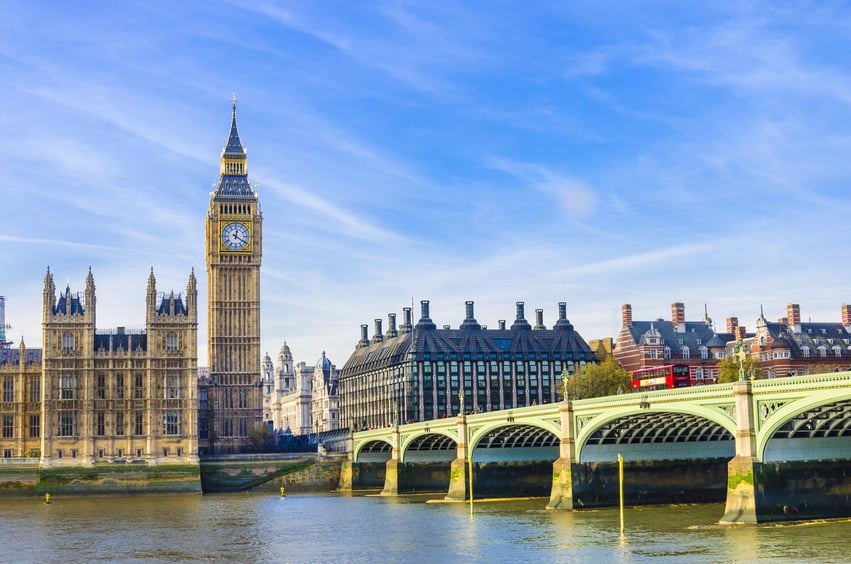Key takeaways
- Although the UK merger control and public interest regime remains voluntary in nature, and no transaction has yet been blocked in the UK on public interest grounds, these further amendments fit the broader global trend of sharpened scrutiny of inbound foreign investment, particularly in light of the COVID-19 crisis.
- The national security measures are designed to address a perceived short-term gap in the UK Government’s ability to intervene in certain sensitive transactions, pending the expected publication of the wide-ranging NS&I Bill potentially within a matter of weeks.
- The key challenge for business will be the broader categories of activities now covered by the reduced intervention thresholds under the Enterprise Act. With ever-increasing digitalisation, artificial intelligence and cryptography now forming a part of many industries, the potential impact of these latest reforms is far-reaching across UK businesses.
- The amendments do not make any distinction in terms of the nationality of acquirers; technically they are relevant to all investors in the identified sectors, although in practice, they are targeted at non-UK investors.
- The complete framework of the new UK foreign investment regime will be revealed once the NS&I Bill is published and tabled before Parliament. At such point, the extent of the proposed changes to the UK regulatory landscape for transactions, and implications for acquirers of sensitive UK businesses in particular, should become clearer.
In depth
Overview
On Monday (22 June 2020), changes to the Enterprise Act 2002 merger control thresholds were laid before the UK Parliament relating to (i) UK businesses critical to combating COVID-19 and future public health emergencies, and (ii) certain UK companies and technologies perceived as being key to national security. These changes are being implemented in advance of the forthcoming National Security and Investment (“NS&I“) Bill, which is anticipated to be published shortly and will establish a standalone UK foreign investment review regime, similar to a US CFIUS-style regime (see here our client alert regarding the UK Government’s previous national security and investment proposals). They also follow previous amendments made in 2018, by which the UK Government materially reduced the jurisdictional thresholds for strategic businesses engaged in activities involving military or dual-use goods, computer processing units or quantum technology. The new amendments are intended to mitigate perceived short-terms risks, and safeguard the national security and resilience of the UK, ahead of more comprehensive powers to be introduced in the NS&I Bill.
Public health
The COVID-19 and public health amendment is being implemented by way of a statutory instrument (The Enterprise Act 2002 (Specification of Additional Section 58 Consideration) Order 2020), which entered into force yesterday (23 June 2020). This Order inserts the maintenance in the UK of “the capability to combat, and to mitigate the effects of, public health emergencies” as an additional criterion for public interest intervention by the UK Government, adding to the UK’s existing public interest regime which enables the UK Government to intervene in transactions on national security, media plurality or financial stability grounds.
This measure will enable the UK Government to intervene in transactions that could impact a business’s ability to combat a public health emergency. The motivation for this new public interest consideration is directly related to COVID-19, with the UK Government concerned that economic disruption caused by the pandemic may leave some UK businesses with critical disease-fighting capabilities more susceptible to takeovers, either from outwardly hostile approaches or because they are financially distressed. The new powers will allow the UK Government to intervene if a business that is directly involved in a pandemic response – for example, a vaccine research company or PPE manufacturer – finds itself the target of a takeover. The change mirrors similar measures taken by a number of jurisdictions around the world to protect, in the interests of national security and public health, domestic businesses that may become vulnerable to takeoverdue to the pandemic.
National security
The national security amendment is being implemented by way of separate statutory instruments (The Enterprise Act 2002 (Share of Supply) (Amendment) Order 2020 and the Enterprise Act 2002 (Turnover Test) (Amendment) Order 2020), which will enter into force once debated and approved by both Houses of Parliament. These Orders will add new categories of “relevant enterprises” to the Enterprise Act, being enterprises concerned with artificial intelligence, cryptographic authentication technology and advanced materials activities, and will amend the normal merger control turnover test (£70 million Target business turnover) and share of supply test (25% combined share of supply with an increment due to the transaction) for such enterprises for the purposes of the UK Government establishing jurisdiction. Based on the wording of the Orders, relevant enterprises will cover businesses whose activities include developing or producing “advanced materials” or any product where cryptographic authentication is its primary function, and businesses who deal in IP relating to the functional capability of advanced materials. Businesses whose activities include research into artificial intelligence, developing or producing anything designed for use in artificial intelligence, and supplying services employing these activities will also be covered. “Advanced materials” comprises several activities and processes, including in relation to materials capable of modifying the appearance, detectability, traceability or identification of objects. Overall, the interpretation of what falls within these sensitive sectors appears fairly broad – we anticipate guidance from the UK Government providing further clarity in due course on the circumstances in which interventions are likely to occur.
The Orders will reduce the jurisdictional thresholds for transactions involving such activities, and enable the UK Government to intervene where the 25% share of supply test is met even where there is no increment to this as a result of the transaction, or where the relevant enterprise has turnover in the UK of over £1 million. These expanded powers will enhance the UK Government’s ability to intervene on public interest grounds in transactions giving rise to perceived national security sensitivities.



